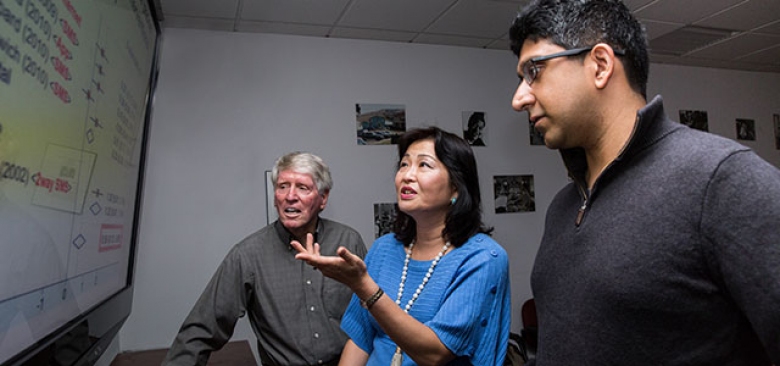Aswani Investigates How Data Can Personalize Mobile Health

With the proliferation of mobile devices and rising awareness that proper diet and exercise can prevent disease and lead to better overall health outcomes, mobile health (or mHealth) applications have become an increasingly popular way to track every step, heartbeat, and calorie with the idea that awareness of activity and calorie intake can help individuals change their behavior. While many of these applications do have ways to set and track goals, most applications have not been tested scientifically to see if users are indeed changing their behavior and sticking with their program long-term. Long-term behavior change would not only be a boon to the health of many individuals working to lose weight or prevent diabetes, but could also help save millions of dollars in healthcare costs as current proven treatments involve multiple costly interventions from specialists who counsel patients, update their goals, and monitor their overall health.
To investigate how mHealth applications can help individuals live healthier lifestyles, IEOR Professor Anil Aswani is partnering with Professor Yoshimi Fukuoka from UC San Francisco’s Department of Physiological Nursing and Professor William Haskell from Stanford’s Center on Longevity. Aswani is excited about the potential of mobile health applications to collect data about user activity as traditional techniques that use self-reporting are not very reliable. By collecting data, the application can automatically set goals or trigger an intervention from a professional if an individual is losing motivation.
Read the full story at The Science of Caring at UCSF.